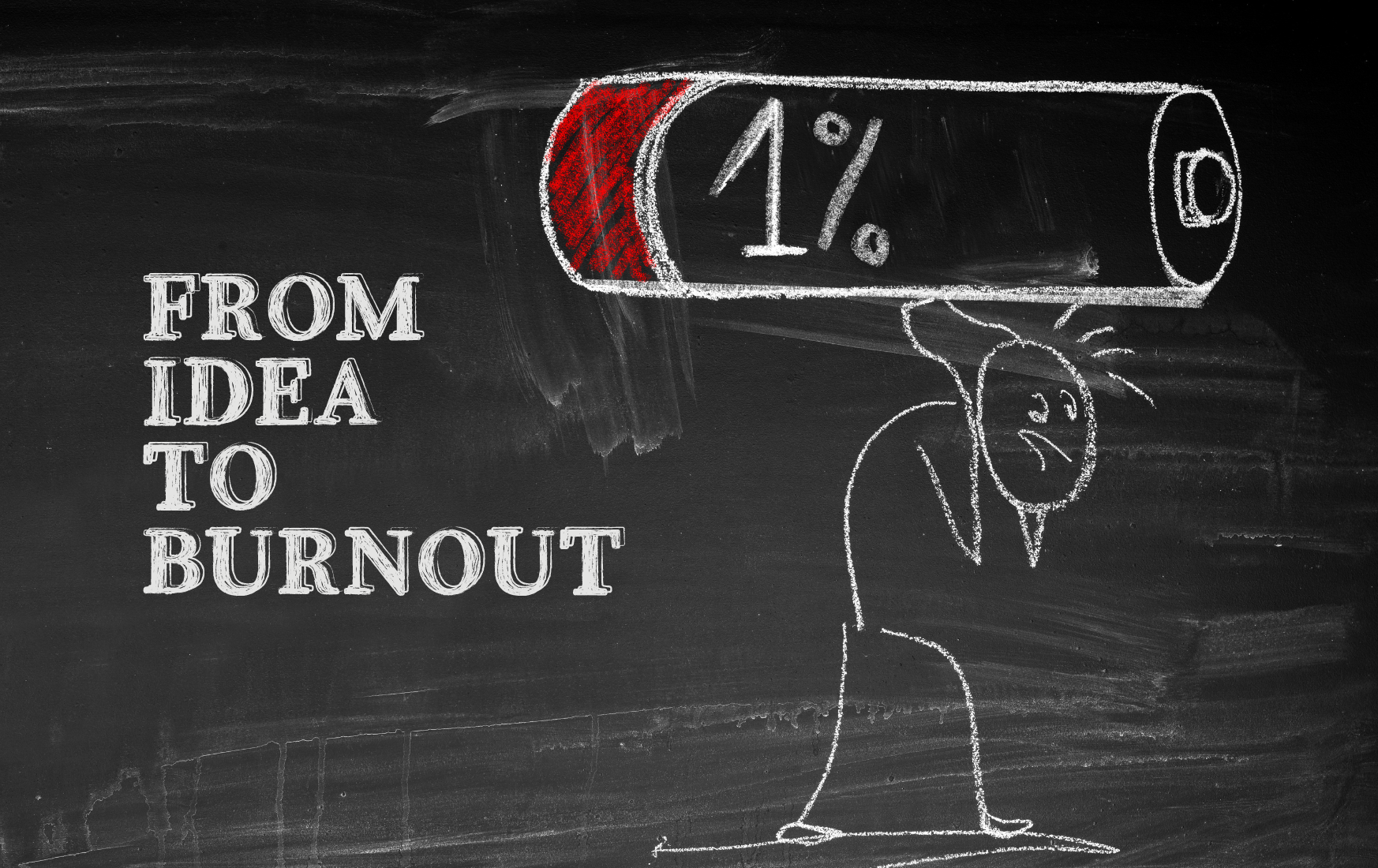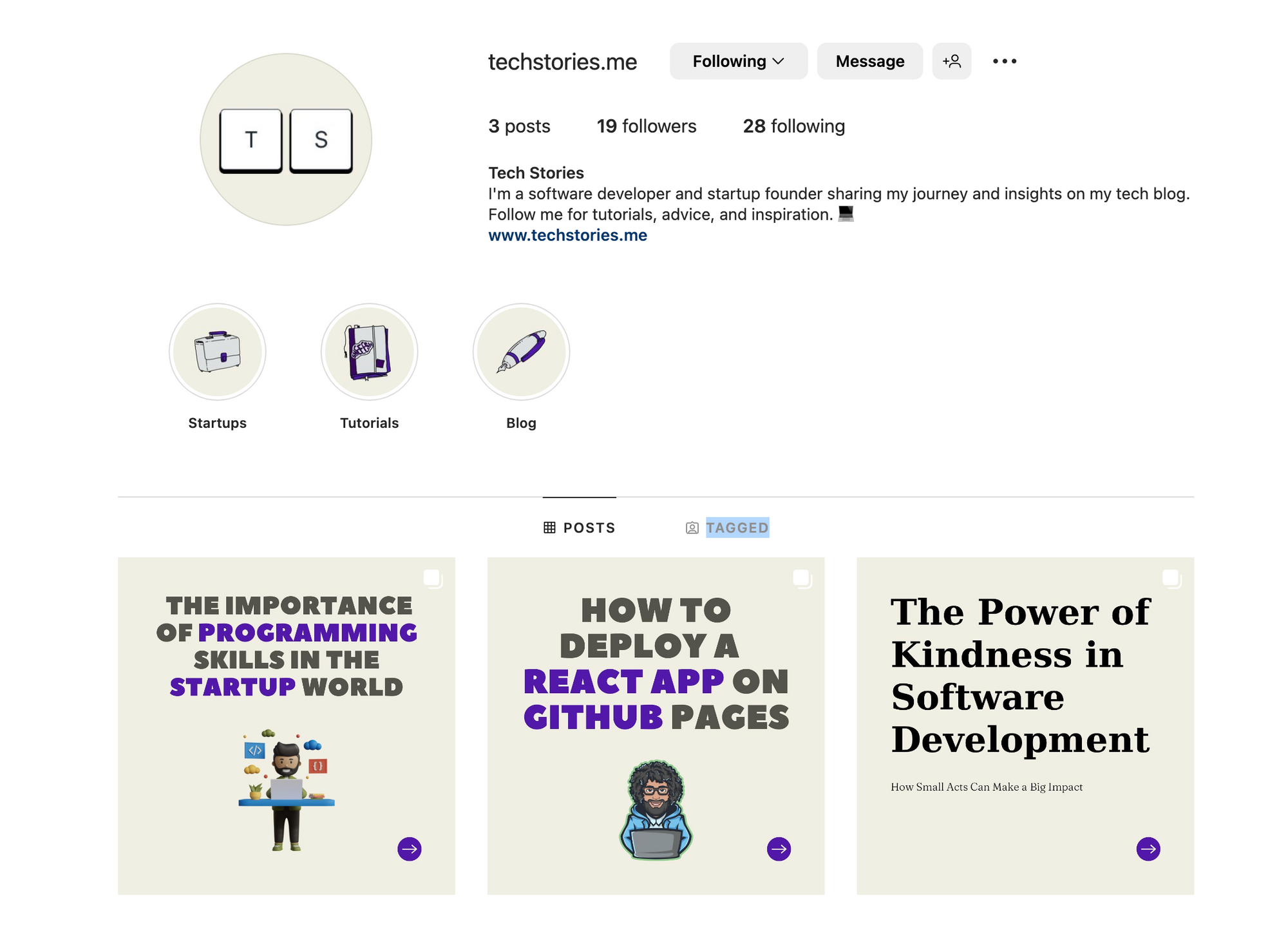Starting a startup is an exciting and exhilarating journey. The idea of turning a passion or a vision into a successful business is something that drives many entrepreneurs to take the leap. But behind the scenes, there is a lot of hard work, long hours, and stress that goes into making a startup successful.
In 2018, I co-founded my first startup, EngageApp, a startup that aimed to drive employee engagement which is proven to lead to increased performance, higher employee retention and better quality work. At that time, I was inexperienced and didn't fully understand the intense reality of startup life. I had never been a part of a startup before and didn't know what to expect. I didn't discuss this with anyone and just dove into the journey, headfirst. I was filled with enthusiasm and energy, ready to take on the world. Little did I know, the road ahead would be filled with challenges and obstacles that would test me in ways I never thought possible.
The Hard Work and Long Hours
Starting a startup requires a significant investment of time and energy. As the co-founder of EngageApp, I quickly learned that the demands of running a business are relentless. I found myself working long hours, weekends, often sacrificing my personal and social life. I was constantly thinking about the project, analyzing data, and trying to come up with new solutions to improve our product.
The hard work paid off as we were able to secure funding and grow our team. But the long hours and constant pressure to succeed took a toll on my mental and physical health. I was exhausted and burnt out, but I couldn't stop, there were always more things that needed to be done. To be honest, I didn't even realize.
The Importance of Self-Care as a Startup Founder
Entrepreneurship can be a demanding and stressful endeavor, and it's essential to take care of oneself, both physically and mentally. I found that the demands of running a business often left me little time to focus on my own well-being. I was so consumed by the needs of the business that I neglected my own needs and I didn't listen to my body.
Self-care is crucial for entrepreneurs to maintain a healthy work-life balance. It's essential to make time for oneself, whether it's through exercise, meditation, or simply taking a break. It's also important to have a support system in place, whether it's family, friends, or a therapist.
Another crucial aspect of self-care for entrepreneurs is setting boundaries. It's easy to become consumed by the demands of the business, but it's important to know when to step back and take a break. This means saying no to unnecessary commitments and delegating tasks when possible.
In my case, I always felt that I had to do more for my colleagues.
In the end, self-care is not just about taking care of oneself, but also about maintaining the longevity and sustainability of the business. I learned that burnout is not only detrimental to oneself but also to the business. It's essential to prioritize self-care to avoid burnout and maintain a healthy work-life balance.
Learning from Failure: The Value of Failure
In entrepreneurship, failure is an inevitable part of the journey. I have faced my fair share of failures and have learned that failure can be a valuable learning experience.
One of my biggest failures was not discussing the reality of startup life with my family or friends. Due to my inexperience, I underestimated the impact that the stress and pressure of running a business would have on myself. I failed to prioritize open communication and self-care, which led to burnout.
Rather than being feared, failure should be embraced. I learned that it is not the end, but rather an opportunity to learn, grow, and come back stronger. Ultimately, success is not about avoiding failure but rather using it to become a better professional.
Recognizing Burnout and Taking Action
Recognizing burnout is crucial for taking action to prevent it from escalating. Symptoms of burnout can include physical and emotional exhaustion, detachment from work, a lack of motivation, and a decrease in productivity. It's important to pay attention to these symptoms and take them seriously.
In my case, I didn't realize it, but the people around me felt the impact, and my relationships suffered as a result. I was so focused on work that I didn't pay attention to those around me.
Once burnout is recognized, it's important to take action. This can include setting boundaries, delegating tasks, and making time for self-care. Additionally, it's important to have a support system in place, whether it's family, friends, or a therapist.
Recovering from burnout is a long and consuming journey. You have to fight with your mind and push yourself to do things that have a positive impact on your true self. Personally, I started doing less and took more time to do activities I enjoyed, like hiking or playing football.
It's important to listen to your body as it will tell you what you need to do to escape the burnout state.
Also, it's ok to ask for help from those around you.
Lessons Learned and Moving Forward
My experience with burnout taught me valuable lessons about the intense reality of startup life and the importance of self-care and open communication.
One important lesson I learned was to be open about my struggles. By being transparent and sharing my own experience with burnout, I was able to reduce pressure.
Another lesson was the need for open communication within a startup. By being transparent about my own struggles with burnout, I was able to create a culture of self-care and open communication within the team.
I also learned that recognizing burnout and taking action is crucial for preventing it from escalating. Setting boundaries, delegating tasks, and making time for self-care are all important steps for preventing burnout and maintaining the sustainability of the business.
Moving forward, I will continue to prioritize self-care and open communication in my work as a startup founder. I will also make a point to recognize the signs of burnout early and take action to prevent it from escalating.
Advice for Aspiring Startup Founders
Starting a new business can be exciting, but it can also be incredibly stressful. It's important to take steps to avoid burnout so that you can stay focused and productive.
Here are some pieces of advice for aspiring startup founders:
- Prioritize self-care
Taking care of yourself is essential when starting a new business. Make sure to prioritize your physical and mental health by getting enough sleep, eating well, and exercising regularly. It's also important to take breaks throughout the day to recharge and reset.
2. Set Realistic Goals:
Setting realistic goals is crucial when starting a new business. It's easy to get caught up in the excitement and set unrealistic expectations for yourself. Remember that Rome wasn't built in a day, and it's okay to take your time to achieve your goals.
3. Delegate Tasks
As a startup founder, it can be tempting to try to do everything yourself. However, this can quickly lead to burnout. Instead, delegate tasks to others on your team or outsource tasks when needed. This will help you stay focused on the tasks that are most important to you.
4. Take Time Off
Taking time off is important when starting a new business. It can be hard to step away when you're working hard to get your business off the ground, but taking breaks can help you avoid burnout and stay motivated.
5. Build a Support System
Starting a new business can be lonely, but it doesn't have to be. Building a support system of friends, family, and mentors can help you stay motivated and avoid burnout. Surround yourself with people who believe in you and your vision.
6. Communicate openly with your team
Open and honest communication is key to a healthy work environment. Being transparent and open about your own struggles with burnout can help to create a culture of self-care and open communication within the team.
7. Learn from your mistakes
Failure is a part of the startup journey. Learn from your mistakes and use them as a stepping stone for future success.
In conclusion, starting a business can be an intense experience that requires a lot of hard work, determination, and sacrifices. The journey of a startup founder is not always easy, and many founders experience burnout at some point.
With the right approach, starting a business can be a rewarding experience that leads to great success.
P.S. We re on Intagram now, please go and follow us.









Member discussion